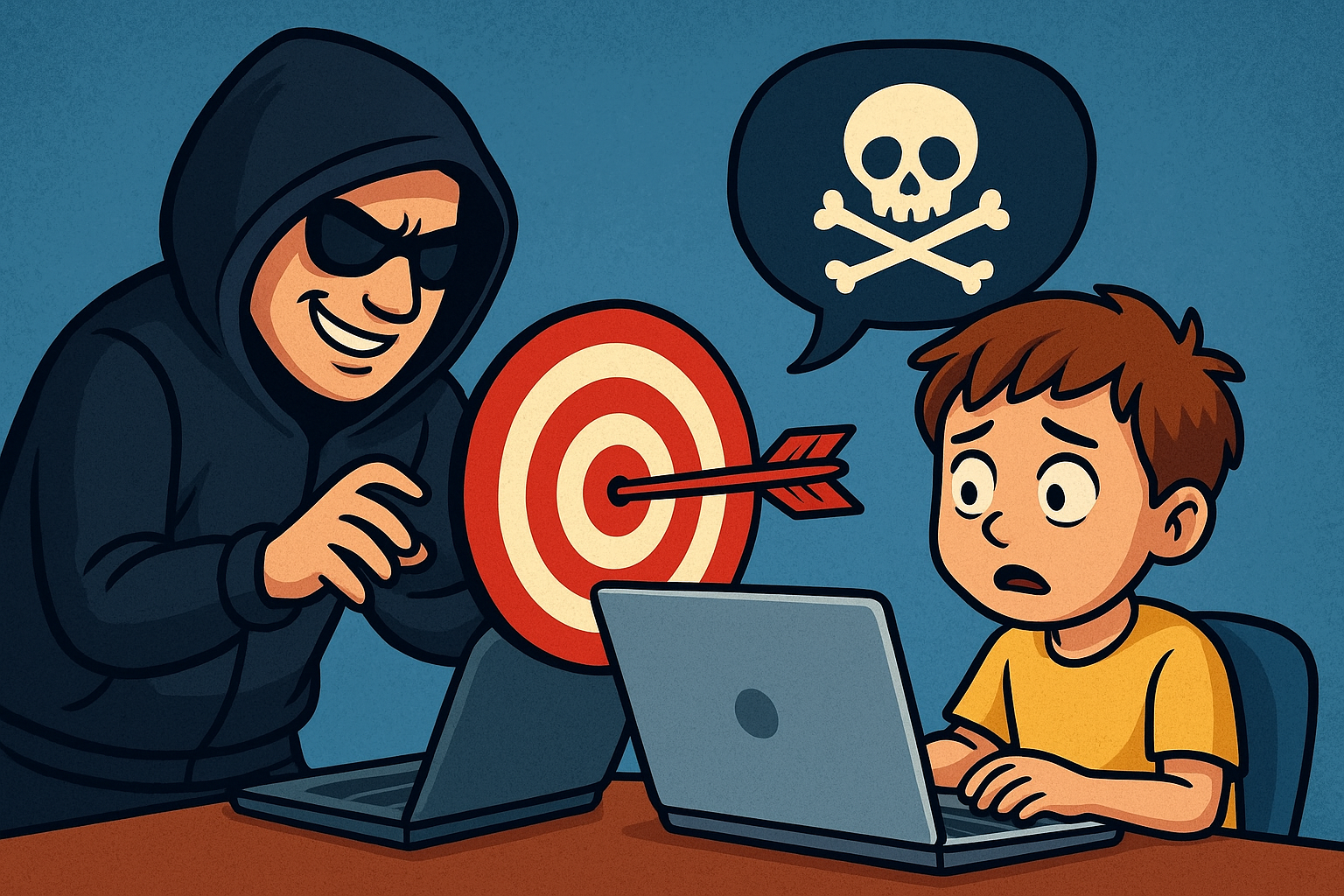Here are some real-world examples, simplified so children (and parents/teachers) can understand the underlying cyber risks:
1. The Roblox Scam (Phishing & Fake Links)
- What happened? Kids playing Roblox clicked fake links promising free “Robux” (in-game money).
- Hackers’ trick: They made websites that looked like Roblox and asked kids to log in.
- Result: Kids’ usernames & passwords were stolen, accounts taken over.
- Lesson: Never log in through links in chats or messages. Always use the official app or website.
2. YouTube Kids Fake Videos (Malware & Misinformation)
- What happened? Hackers uploaded videos that looked like normal cartoons but had scary or harmful content hidden inside.
- Hackers’ trick: They used kid-friendly titles and thumbnails to trick children into clicking.
- Result: Kids got scared, misled, or exposed to bad links.
- Lesson: Always watch videos from trusted channels, and parents should enable YouTube Kids filters.
3. Fortnite V-Bucks Scam (Social Engineering)
- What happened? Hackers created fake websites and apps offering free “V-Bucks” (Fortnite currency).
- Hackers’ trick: They asked for personal details or made kids download infected files.
- Result: Kids’ devices got malware, and some parents’ credit cards were charged.
- Lesson: Nothing is really free online. Don’t share personal info or download unknown apps.
4. Snapchat Stranger Chats (Predatory Risks)
- What happened? Kids were contacted by strangers pretending to be their age.
- Hackers’ trick: Gained trust, then asked for personal pictures or information.
- Result: Some kids were bullied, blackmailed, or tricked into unsafe situations.
- Lesson: Never talk to strangers online. Only add people you know in real life.
5. Educational Apps Data Breach (Privacy Risks)
- What happened? In 2020, over 1 million kids’ accounts from an education platform were leaked.
- Hackers’ trick: Exploited weak passwords and poor security by the company.
- Result: Kids’ names, ages, and email addresses were exposed.
- Lesson: Even schools and apps can be hacked → Always use strong passwords and avoid sharing extra personal info.


